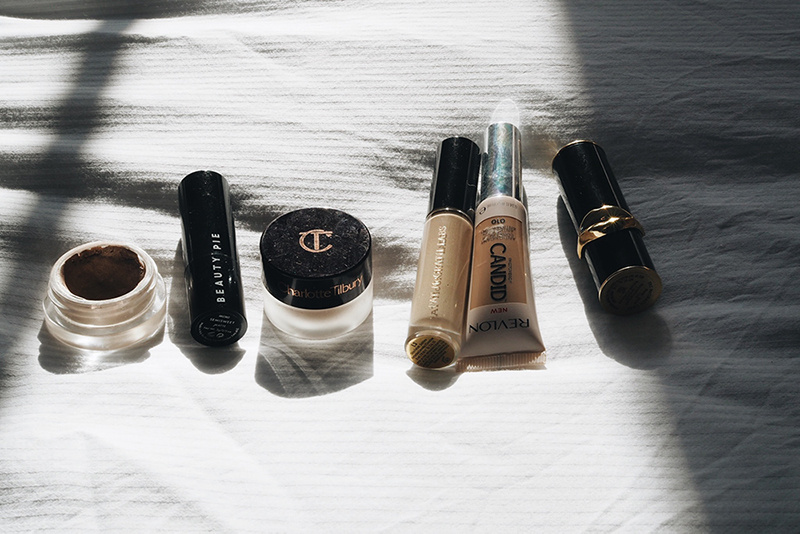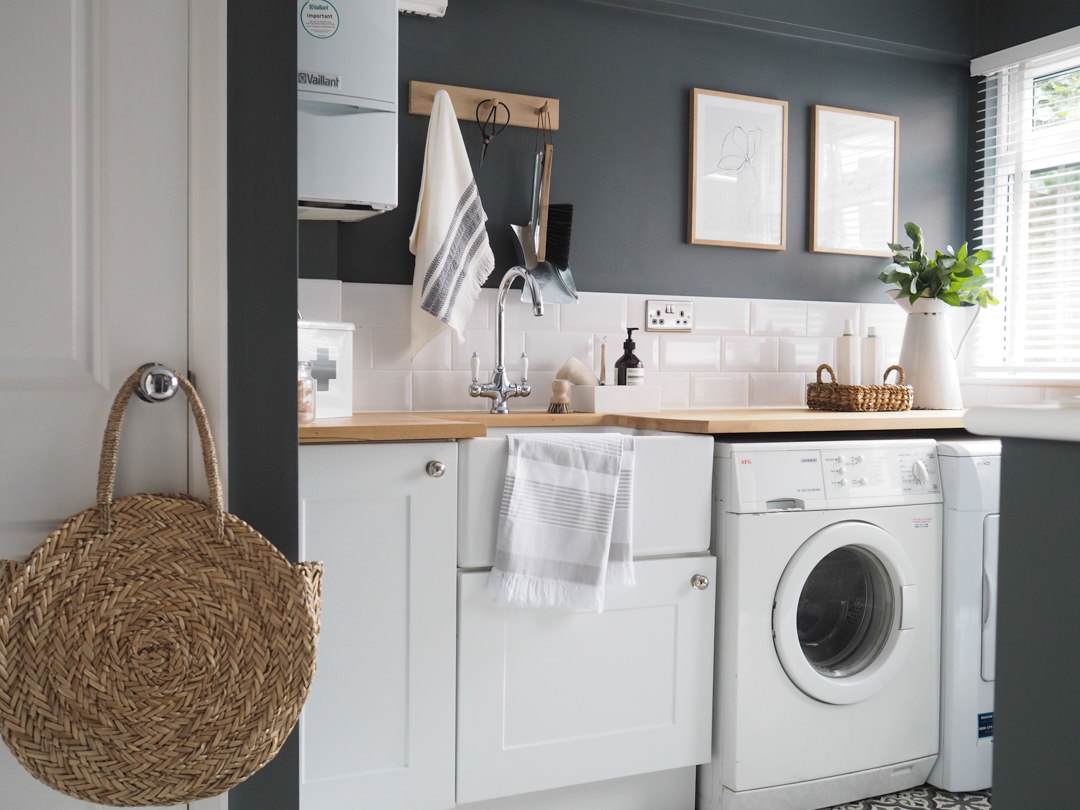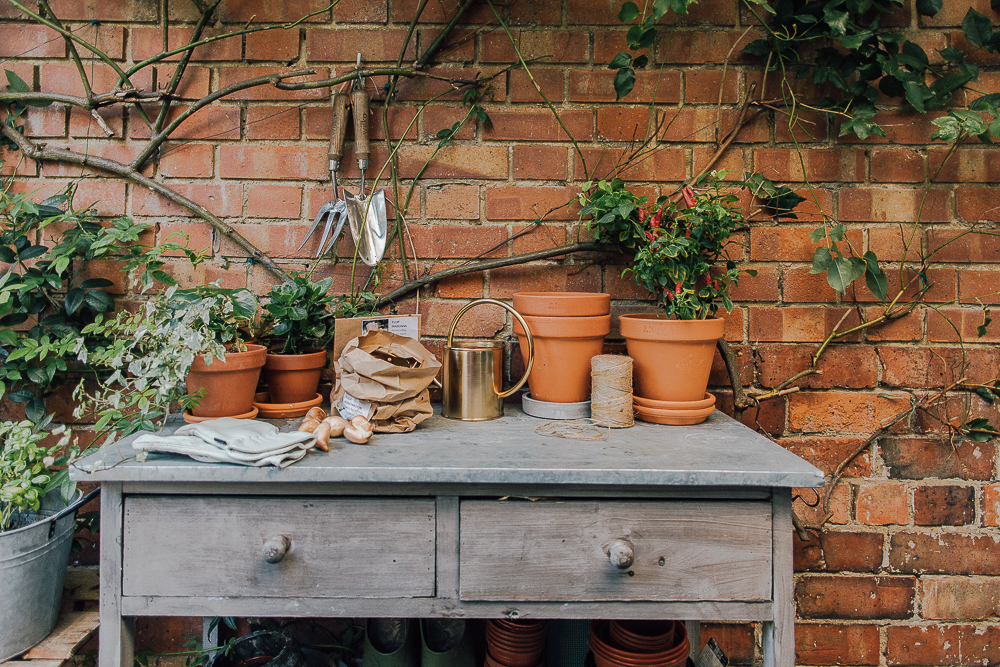Today we’re joined by reader Clare who has a passion for personal finance. Clare commented on a recent post about her wish to write a feature on joint finances and lots of you mentioned you’d be keen to have a read.
After reading Lauren’s article on who pays the bills it was clear that different relationships each have such differing views on personal finances and I wanted to write about my experiences and share my thoughts on the subject.
What struck me most was the sheer number of us who feel that our worth is based on the monetary value that we bring to our relationships. I feel we shouldn’t be about getting hung up on how much we earn but focusing on how much we contribute and those are two very different things.
A relationship is about playing to each other’s strengths and complementing each other; it doesn’t always work when one person does everything, or when two people do an equal half of the same thing. In our house renovation we’ve shared the tasks; Matt loves the big, quick jobs so he paints the walls while I love the detailed jobs, so I cut in. If Matt painted everything the centre of the room would be great but the splodges all over the ceiling would make me cry. Equally if I did everything we would have lovely lines in the corners but it would take me a week to paint the walls. I trust him to do a great job of getting even coverage and he trusts me to get a crisp, even finish. Financial matters are another set of jobs that we share and trust each other with. However we split the tasks – paying bills, budgeting the monthly food shopping, finding the best accounts for our savings – we play to our strengths but also work together to understand the decisions and actions we’re both taking.
As a couple you’ll probably have talked about your hopes and dreams: Where in the world you’d like to visit, where you’d like to live and what you’d do for a living of money was no object. I love those conversations, usually on holiday a couple of poolside cocktails in when you feel truly connected to your other half. Unfortunately, those dreams remain just that until you have a plan to make them into a reality. Sad as it seems, I get really excited when my husband and I talk about moving money into a better account or getting cashback on our insurance renewal because we’re one step closer to living the life we’ve always talked about.
Contributing more to shared finances doesn’t have to mean working three jobs or selling your shoe collection, it can be as simple as making some small changes. You tried those supermarket-brand products that are just as good as the branded ones? That’s £10 a week you’re putting in the pot. You made your lunch three times this week instead of taking it to work? Another £15 for the pot. You went online and researched how to get the cheapest deal for your utilities? You just made £200 for the pot and your joint finances are now in much better shape for it. And when you’ve spent time and effort on contributing to your shared finances, you feel more in control of what you have and care more about how you spend it.
Maybe this is second nature to you and you’re already bringing your A-game to your financial planning. Does your budget spreadsheet put the chancellor to shame? I’d love to know how you contribute to your family finances whether that’s finding a great deal for your mobile phone, batch cooking for the week or shopping the reduced section of the supermarket. And the single ladies out there, I’d love to know what your savings secrets are. Do you have any tips for making the most of your monthly finances?
I hope you spend some time this week enjoying the longer evenings – I’m feeling inspired to get our garden plans back up and running. What are your goals for 2017? Are there some small changes you can make to help you achieve them?












I was excited to read this post but would it be possible to have a bit more detail? It was a great intro but I was hoping to hear a bit more about what you actually do.
For me, it’s all about my spreadsheet! Every few days I log all my spending by looking at my online banking. It helps me see how I’m doing, keep track of my savings building up and if I’m overdoing it at the supermarket! I categorise by direct debits, savings, petrol, supermarket, cash and misc spending.
I also use Lidl for the majority of my shopping and find it makes a big difference. I still spend £260-300 a month just for me but it would be even more if I bought the same things in sainsburys. Plus that does include a lot of prosecco!
I’m buying my first house at the moment and I’ve managed to bag about £1200 from the government by using the help to buy ISA. Bonus money!
I’ve never got into cash back sites but would be interested to know which ones to use.
Thanks!
Hi Claire,
Thanks for commenting – so pleased that you’re on the way to buying a home!
For me it’s ALL about the spreadsheet – I have lots of tabs for different things (one for the mortgage and the overpayments we make, one that tracks our savings accounts and how we can maximise the interest rates available, one for our monthly budget etc.) I’m still a work in progress though – I need one that tracks when our various insurances are due and when to check best quotes for them as I totally missed one this month, oops!
I’m a saver through and through and I want to get the best I can – some of the best savings rates available are on current accounts so it’s worth checking if it’s worth switching.
I am all about getting the best deal for what I buy – I always check whether there is a deal or voucher available before I buy and for cashback Quidco or Top Cashback are worth checking out.
In terms of your grocery shopping, there are various cashback websites/apps that allow you to scan in your receipt and claim back cash for certain items – it all adds up! Also, have you thought about planning your meals for the upcoming week and then only buying what you’ll need for those meals? I’m one of those people you’ll find lurking at the reduced section before closing time – I live right by a large supermarket – and I find I can stock my freezer for a fraction of the price. Freezing is definitely your friend when trying to save!
I hope that helps!
Hey Clare, can you share what the cashback websites/apps are good for grocery shopping? Would love to try this out!
Hi Naomi,
Quidco have one called Clicksnap – useful if you have a Quidco account as it pays directly into that. Shopmium has lots of offers on children’s food so great if you have little ones x
Thank you!! 🙂
Great topic for a post. I’d love to know how you and others split money between couples. Do you put the majority of your salaries in a joint account and use that for everything or do you take it in turn paying for things like groceries? And do most people try and split 50/50 even if one person earns more?
Interesting questions – I think the earlier post covered quite a lot of this so may be worth going back and looking at the comments, although I may be wrong! In my household we earn quite different amounts, so we put the same amount each into a joint account to cover utility bills and groceries only, and then the mortgage and other expenses (anything from buildings insurance to household Amazon purchases) are split pro-rata according to our salaries. That way we can both save some money rather than one person feeling like they don’t have anything left over. I am also not an advocate for putting everything into one account, I like my own personal stash for those shoes that I can’t live without, without feeling guilty that I’m spending joint money. That is just our personal solution though, and it works well for us but I appreciate it isn’t for everyone. You could do everything pro-rata, our system is a bit odd but is because we lived together first and so the groceries and bills bit remained as originally set up. Maybe we should change that now?!!
Hey Frances, you might have missed Lauren’s original post. The comments were AMAZING for getting an insight into how a lot of the reader split their finances!
It’s linked at the top of the post as “Lauren’s article on who pays the bills”.
Thanks Naomi! Have been away from my RMS desk today so thank you for mentioning the post x
I’ve recently signed up to a cash back site, top cash back after reading a post either here or on RMF a while back. It’s surprising how quickly it adds up especially if I can be a bit clever and use different emails to be a ‘new customer’ at my regular online shops as those offers tend to be a little better. I try to look at as having nothing to lose even if the site goes belly up as it’s free money. I also try and remember to check for voucher codes in stores before purchasing. It sometimes takes the impulse out of the impulse buys which is also good for the bank balance. As for the boring household stuff it comparison sites all the way followed by a bit of MartinLewis Money Saving Expert inspired phone haggling. What have we got to lose!!
Good post! And I laughed about the painting – I too do the cutting in a detail work, my husband is in charge of the roller 🙂 – and don’t get me started on spreadsheets! I have spreadsheets for everything, I blame my Maths background, just a tad OCD about these things…!
Annie, I think you and I would get along! x
We’re in the process of saving for a house at the moment and are using all kinds of methods to cut and save to build as big a deposit as possible.
We’re taking advantage of the Help to Buy ISAs (by having one in each of our names) and the current 5% interest rate on Nationwide’s current account.
When it comes to shopping at Lidl, cashback and all those ‘money saving’ tactics. I have to say that the biggest lesson I’ve learned is that it’s only money saving if you actually put away the money you save at the end of it. If you’ve got a £100 shopping budget for the week and you shop in Lidl/discount aisles and get your food for £70, then that £30 should get put straight into the savings.
Budgeting has helped me with this and while I know it’s just a glorified spreadsheet, I’m a bit of a sucker for beautiful software so we swear by https://www.youneedabudget.com/ for not just keeping track of where our £ are going, but actually planning where each £ goes in advance.
Another YNAB fan here – I started using it as a student and couldn’t be without it now. I could theoretically do the same with an Excel spreadsheet for free, but with a joint account, three current accounts, two regular savers, and two credit cards (the current accounts pay 5%, 4%, 3% on various limits and the cards are 0% to maximise the amount of my own money that’s earning interest) I just couldn’t keep track without YNAB.
I don’t believe in bank loyalty either, we’ve earned £225 in promo offers so far this year by switching my partners current account, and then me ‘recommending’ him another bank which we switched the joint account.
I am such a sucker for an organisational spreadsheet!
For me, and I’m sure a lot of Rock My…readers, I do love beautiful things. Now we have hefty nursery fees to consider, and all the bills associated with running a home, I simply cannot afford to buy the beautiful copper lamp I saw on a blog. The rug all over my instagram feed is two months worth of food shopping, and so completely not viable.
It’s easy to get caught up in the consumerism online, and my epiphany was when I decided, do you know what, I don’t need this stuff. I NEED a three bedroomed house. My money is far better spent on bricks and mortar than succulents, or a Kate Spade cup. Whilst those things are nice, and I’m hoping for a time in life when I will be able to buy lovely little bits and bobs again – but for now, I’m saving and I’m saving HARD.
Naomi’s point about ‘it’s only saving money if you actually put it into savings’ is spot on, and something I am trying super hard to adhere to over the next couple of years.
Hi, my hubby and I split pretty much everything equally when it comes to finances.
A massive change we have made is doing huge food shops for two to three weeks at a time. We make a list, stick to it and then have a big cook off afternoon or evening to cook up what we can and freeze it. We only spend about £100 for three weeks food, then about £10 a week for fresh groceries. We get the bulk of our food at Aldi and then the rest at Asda. This has reduced out food bill by £100 a month! I met someone at a wedding last week who spends £160 a week on food because she refuses to eat anything other then fresh food but probably throws a third of it away! Madness!!
Also we went into our bank last year to see what accounts were available as the interest was practically non-existent. It turned out we could keep our existing accounts and convert them into reward accounts. Just by having four direct debits go out from each of our current accounts and logging into internet banking once a month we get £5 cash back on both accounts each month. This is with Co-op bank by the way.
I’m a saver rather than a spender and even though I know what is going out of my account each month I still double check the amounts every payday and go through my diary to see what I have coming up socially to have a realistic idea of what I am going to spend. Generally I check my bank account every week to make sure I’m still on track. I’m sure I sound like the money police but the odd drink or treat soon adds up.
Me and the hubby generally use comparison websites when things come up for renewal so we’re pretty confident we are on the best deals for us where possible. But I think you need to make the effort to look for good deals rather than expecting to just get good prices through loyalty.
Claire B I totally agree – nothing about saving money comes easy, it’s all about putting the work in if you want the rewards!
I love the idea of a big ‘cook off’ day – totally suggesting this to my husband.
This is a subject close to my heart, as Mr H is an accountant and my background is in the same industry. Needless to say, we love a spreadsheet!
Our finances are set up so whether we’re both working or one of us is (as is the case at the moment as I’m a SAHM right now), we both end up with the same amount of ‘fritter’ money once everything has been paid for. We have a joint account for household bills and food, individual ‘bills’ accounts which our personal bills come out of (mobile, gym membership, etc) and a play money account each. We find it better that way as a) I don’t feel like I’m asking him for money or feel beholden to him, and b) this way he can’t see how much I spend on Amazon and expensive coffees (and likewise him on iTunes and on energy drinks).
Because I have more interest and time, I tend to take point on household expenditure to cut costs – I shop around religiously for utilities and insurance as soon as we’re out of contract, and always use a cash back site. Quite often you can be paid twice – once for using a comparison website through them and again for actually taking the policy or contract. Quidco tells me I’ve had £983 in 5 years, so it’s definitely worth doing! I also do the legwork on our holidays, booking flights, hotels and transfers separately to ensure we get the best deals.
At the moment, our financial goal is ‘lifestyle maintenance on one salary’ as I’m not working. This is less of being able to save and more having the luxuries we’ve been used to in the past without breaking the bank or dipping into our savings. Any and all money saving tips are always welcome!
I’d love to know more details of your spreadsheet as I’m a total spreadsheet geek but not sure where to start from a finance point of view. What goes on each tab, what formulas are used etc. Thank you!
Really interesting as someone about to go on statutory maternity leave and definitely not one of life’s born savers. Money is something you have to learn but what I’ve also always struggled to find is good British spreadsheets. Information on ones to download or how to make one would be dull but useful!!!
I made mine from scratch as so many out there were US-centric! It started when we got married – I could tell you exactly how much our big day cost as I had a spreadsheet for all aspects of it and that gave me the bug!
Mine is essentially a mortgage overpayment calculator that we’ve built out to cover our other savings, spending etc. Happy to share another time if it would be useful for readers!
Yes please!! Interested in the mortgage overpayments too! Thanks.